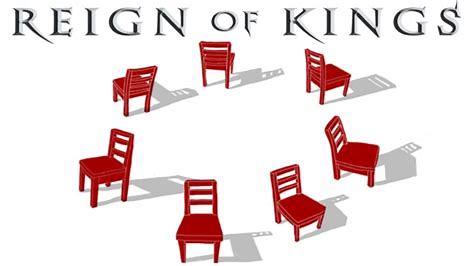The Prize - The Crown
“The Journey to Jerusalem” is a children’s ancient party game going as far back to the Crusades, circa 10th – 12th AD. This game originated from several heavy losses incurred before they made it to the holy land.
The original Welsh version: boys sat on chairs, girls danced until music stops, girl left standing leaves the game; last girl wins, gets to kiss the boy. On the face of it, a fun game. Dig a few layers deeper holds a parody of what is rightfully your chair, and it becomes a story of pulling and snatching the ownership of the chair from ancient times, still relevant today.
Let’s continue to call it the Welsh version of the Big Chair, befitting to the Kymric title where the music is one long waiting period over 70 years. She made her appointed heir danced around for 73 years and was only just able to sit and rest his weary feet and ceremonially occupy the Chair in May 2023, and until his playlist loops “When will I see you again” comes to the ending of his favorite The Three Degrees, the beginning of Operation Menai Bridge, his secret funeral code is called, comes into focus.
Succession can be problematic. Since Henry VIII’s reign producing male heirs needed many marriages, or concubines to rectify miscarriages and infant mortality. The Royal Constitutional Act of Settlement took two centuries later, from 1701 that cemented the foundation of succession with Parliament rule.
Royalty is a position preferably inherited by birth through blood line. Continuation of Royal blood was solved in some cases by incest among half-brothers and half- sisters practiced in preserving their undisputed right.
Modern 20th century resulted in the entrance of commoners, for incest was unacceptable by way of morality or genetic defects. Mixing commoners in one case, from origins of slavery, has spilled over such pent-up inner discomfort pointedly suffocating empathy, love and understanding from both sides.
So what is a royal?
In ancient Egypt, the king was the representative of the deity on earth. It is very important, therefore, to determine the nature of this association in order to sustain belief among commoners.
Through the ages, the musical chair rule had to adjust with the evolution of time from deep faith to questioning its validity. Sustaining its position required succession only through bloodline. With the introduction of monogamy the discrepancy of the rightful heir is never questioned. Prior to sophisticated modern society, children from mistresses and concubines were the only assurance of the continuation of the majestic blood-line that encouraged incest. From such unions, protection of the institution becomes the backbone of the country to subvert any political party that wins an election, fixed or not.
Distinct difference between ruler and commoner must be spotted easily. An authoritative figure, the myth had to be Godlike. Military competency, special achievements, educational prowess attained real or manufactured was used as propaganda. Credited with medals, war-like heros', paraded after winning battles, examples are of either Falklands or Afghanistan. Uniforms become distinctive and places them apart from the commoner.
Observed by a conniving pedophile blackmailer to secure his own wealth, by offering fantasy without consequences, the naive royal falls prey to human needs exposing their ungodlike longing for wild lust. A secret kept in preserving the untouchable monarchial status had a price.
In some monarchial ruling, ancient Roman laws from the 3rd Century are still practised in protecting any defamation against the Royal family. Precise protocol is used and becomes a strict rule, to be observed by commoners, when addressing Royals. Specially constructed royal language, taught in schools, is enforced when addressing them. The royals reply normally. Official news reports, whether verbal or in writing requires usage of the special words describing various actions. Terminology sets them apart; houses are palaces, churches are abbeys, and the period between the reign of two monarchs is called an “interregnum” much like overlapping US presidents exchanging power, the term “inauguration” is precise, weighted yet with dignified protocol.
While the music has not stopped and the decisive heir yet to be appointed, in my fairytale myth, the dance goes on in a loop playlist from K-pop to Swift-pop.
